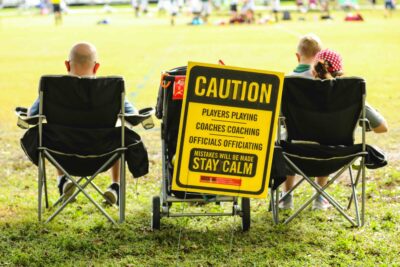Worried About Teen Mental Health?
Worried about the effects of the pandemic on teen mental health?
The pandemic has been especially hard on the mental health of our teens.
I don’t know about your house, but as the birds and the flower buds emerge, so have the personalities of our kids that had previously been blanketed by the pandemic. It’s like they were bottled up a bit with COVID lockdowns, as they weren’t allowed to be in their natural environment—surrounded by peers. They were forced to be closely tethered to those who biology is telling them to push away from—their families. They felt (and were) isolated. Normal routines were disrupted. Sports and activities were canceled, as were proms, graduations, and other milestones. And the effects kept us from seeing some of the beautiful pieces of our kids that we love so much and may have caused us to be concerned about teen mental health. Honestly, really concerned.
With the onset of spring and the emergence of some degree of pandemic normalcy, our teens are beginning to re-emerge as well.
But I can’t help but think—what about the potential long-term effects of the pandemic on the mental health of our teens? And what can we do about it as concerned caregivers?
Here are three pieces of advice that I’m sharing with you if you’ve been thinking about teen mental health, as I’m writing them down as food for thought myself.
1. Stay calm.
Research has also shown that parental stress causes increased anxiety in our teens and kids, and that’s a hard pill to swallow. Especially if you are already concerned about teen mental health. And if you are anything like me as a parent, the more I perseverate, the more I catastrophize, the more I freak out. And the funny thing about kids—they can pick up on that without a word being said. Without a conscious look on my face. There is a natural energy that passes between caregivers and kids where our emotions and feelings are absorbed into their little beings. And we must be aware of this.
For me, it’s getting out for a run, going for a walk, watching mindless television, talking to a friend about the situation—it’s doing something to help calm my own nerves so I don’t pass that nervous energy to my kids. I’ve found that it’s just not productive as well–I can’t do my best thinking and problem-solving under a cloud of stress. I’m not recommending to go all Pollyanna on your family or emerge as a brick wall without emotions or feelings, but keeping yourself together is vital. You are the keystone to their strength, so take your glass of wine in the bathroom alone when (not if) need to have a moment. Those moments are totally okay and normal! It might also help your mental health as a caregiver to take the next point to heart.
2. Don’t keep mental health issues to yourself.
We must normalize parenting conversations and not keep all the complex parts of parenting to ourselves. Parenting is stressful, hard, and messy. A recent poll on children’s mental health out of Michigan reported that 47% of 977 parents and caregivers say their teens show signs of worsening mental health. Have you heard enough people talking about this? We need to be honest about what’s happening in our own houses so we don’t feel like we are the only ones. That feeling of isolation doesn’t help us be stronger parents for our kids, nor does it help set a good example for developing habits that are productive for good mental health.
I’m not saying that you should air all your dirty laundry on Facebook, but I am recommended that transparency about parenting can build stronger communities of problem-solving and decrease the feeling of “OMG-is-this-normal-I-don’t-know-what-to-do.” We have to work to normalize parenting conversations because we are all on the struggle bus. To me, it’s like airbrushing or photoshopping photos before we send them out in the world—it’s just not real. We could all use a dose of less-Kardashian-life, more-real life.
3. Still concerned? Talk to a professional about mental health or education stress.
Though we may be experts on our children, we are all not experts on mental health or educational needs. Talking to an expert coach or an experienced therapist can help us gain some objective insight into situations that we are a bit too close to see clearly, as well as provide professional advice for tried-and-true paths forward. This could be finding the right therapist to help your child wade through cloudy feelings because, let’s face it, we all are better people with therapy. Or maybe it’s an academic coach that can help tone down the overwhelming feelings that school might be throwing their way. Academic coaching can help teens make sense of school, set goals, get organized, and decrease school-related stress. And let’s be honest (back to point #2 above): Most of the time it is easier for our teens to listen to someone who is not in a parenting or caregiving role with our kids. They don’t always like to follow their parents’ advice. And if you are looking for someone to help you navigate tough parenting-educational challenges, maybe a parent coach could be your guiding light.
Where else to go for help and further reading:
- This article from VeryWell Family, Where To Go If Your Teen Needs Help
- Check out this article from the Center for Parent and Teen Communication on research-based strategies parents can apply to improve the mental health of teens.
- This article from WebMD, The Pandemic Has Harmed Mental Health of Teens.
- This article from March on national research about teen mental health out of the University of Michigan
- This page describing the online and in-person Academic Coaching services that are offered at The Community Classroom
This piece is written by The Community Classroom founder, Dr. Megan Allen, NBCT. She writes this as an educator, an advocate for strong mental health, the stepmom of 4 teens, and the mama to one almost-two-year-old.
Photo of “how are you really” courtesy of Finn on Unsplash
“Stay calm” photo by Mick Haupt on Unsplash
“Hands” photo by Womanizer WOW Tech on Unsplash





0 Comments